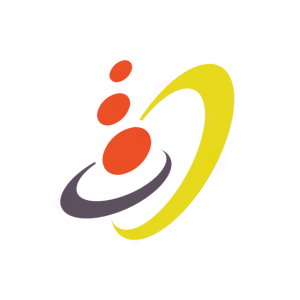Karyopharm Presents Updated Exploratory Subgroup Analyses from SIENDO Study in Patients with Advanced or Recurrent TP53 Wild-Type Endometrial Cancer During 2024 ASCO Plenary Series: Rapid Abstract Updates
Rhea-AI Summary
Karyopharm Therapeutics presented updated subgroup analyses from the SIENDO study at the 2024 ASCO Meeting, focusing on advanced or recurrent TP53 wild-type endometrial cancer. Key findings include a median progression-free survival (PFS) of 28.4 months for selinexor-treated patients versus 5.2 months for the placebo group. Additionally, a quality-adjusted time without symptoms or toxicity (Q-TWiST) analysis showed a mean of 26 months for selinexor compared to 15 months for placebo. No new safety signals were identified. The exploratory subgroup analysis highlighted promising efficacy signals, with ongoing Phase 3 trials expected to provide definitive results by mid-2025.
Positive
- Promising median PFS of 28.4 months for selinexor in TP53 wild-type patients.
- Significant Q-TWiST improvement: 26 months for selinexor vs. 15 months for placebo.
- No new safety signals identified as of April 1, 2024.
- Ongoing Phase 3 trial to assess benefits, expected results by mid-2025.
Negative
- Primary analysis showed no clinically meaningful improvements in the ITT population.
- High rates of treatment-emergent adverse events (TEAEs): nausea (90%), vomiting (60%), diarrhea (45%).
- 17% of selinexor-treated patients discontinued due to TEAEs.
Insights
The updated exploratory subgroup analyses of selinexor in TP53 wild-type endometrial cancer patients demonstrate a compelling potential for this drug as a maintenance therapy. The significant progression-free survival (PFS) difference, with a median PFS of
Moreover, the Q-TWiST metric, which assesses the quality and quantity of clinical benefit, indicates an improvement in patient quality of life, further supporting the use of selinexor. However, the high incidence of nausea, vomiting and diarrhea, albeit mostly low-grade, could limit patient adherence.
While these findings are promising, they are based on exploratory analyses. The ongoing Phase 3 trial will be critical in validating these results and potentially establishing selinexor as a standard maintenance therapy for specific endometrial cancer subgroups.
From a financial perspective, the positive subgroup data for selinexor in the SIENDO study could have a significant impact on Karyopharm's valuation. The extension of median PFS to 28.4 months—and up to
However, it's important to consider the cost of treatment and adverse event management, which may impact overall profitability. Treatment discontinuations due to side effects (17%) could affect long-term adherence and thus the financial outlook.
Investors should also watch for the outcomes of the ongoing Phase 3 trial, expected in the first half of 2025, which will provide a more definitive assessment of selinexor's clinical and economic viability.
Long-Term Follow-Up Data Signal Promising Progression-Free Survival (PFS) for Selinexor in the Maintenance Setting with Median PFS of 28.4 Months in the TP53 Wild-Type and 39.5 Months in the Proficient Mismatched Repair Status (pMMR) TP53 Wild-Type Exploratory Subgroups
Q-TWiST, an Important Metric Assessing Both Quality and Quantity of Clinical Benefit, Suggests Improvement with Selinexor versus Placebo, which is Critical in the Maintenance Setting
Company Highlights Additional Presentations in Endometrial Cancer and Myelofibrosis at ASCO 2024
The primary analysis of the Phase 3 SIENDO study of selinexor maintenance therapy in advanced or recurrent endometrial cancer showed improvements in median PFS for the intent-to-treat (ITT) population but were not clinically meaningful. However, an exploratory analysis of a pre-specified subgroup of patients with TP53 wild-type endometrial cancer showed a promising efficacy signal.
In the exploratory subgroup analysis, 113 patients with TP53 wild-type advanced/recurrent endometrial cancer were randomized to receive selinexor (n=77) vs placebo (n=36) as maintenance therapy after 1L platinum-based chemotherapy. As of the April 1, 2024 data cut-off date, and a median duration of follow-up of 36.9 months, selinexor-treated patients had a median PFS of 28.4 months compared to 5.2 months for patients receiving placebo. In selinexor-treated patients with TP53 wild-type/pMMR and TP53 wild-type/dMMR endometrial cancer, median PFS was 39.5 months and 13.1 months compared to 4.9 months and 3.7 months in those treated with placebo, respectively. Although immature, preliminary overall survival (OS) in the TP53 wild-type subgroup was promising with a hazard ratio of 0.65; median OS for selinexor has not been reached.
The updated analyses also highlighted findings from a quality-adjusted time without symptoms or toxicity analysis (Q-TWiST) used to assess quality and toxicity-adjusted PFS. The findings showed the restricted mean Q-TWiST for selinexor to be 26 months compared to 15 months for placebo, resulting in a difference of nearly 11 months.
"The approximately 40 months median PFS observed with selinexor in patients whose tumors are both TP53 wild-type and pMMR, coupled with the robust QTWiST analysis, suggests that selinexor may be an optimal maintenance therapy in endometrial cancer," said Reshma Rangwala, MD, PhD, Chief Medical Officer and Head of Research at Karyopharm. "Our ongoing Phase 3 trial will definitively assess these benefits and may lead to a new standard of care in the novel subgroup of patients defined by TP53 wild-type status."
No new safety signals were identified as of the data cut-off date of April 1, 2024. The most common treatment-emergent adverse events (TEAEs) in selinexor treated TP53 wild-type patients were nausea (
"It is exciting to see the emerging data around progression free survival, as well as an encouraging trend in overall survival and the Q-TWiST metric in the TP53 wild-type subgroup analysis from the SIENDO study," said Vicky Makker, MD, Gynecologic Oncologist, Memorial Sloan Kettering Cancer Center. "The long-term follow-up data further reinforce how selinexor could benefit patients with endometrial cancer, including patients with mismatch repair-proficient disease, and add to the growing body of evidence supporting the potential role of selinexor as a maintenance treatment option for patients whose options are limited."
A copy of the presentation from the "ASCO Plenary Series: Rapid Abstract Updates" special session can be accessed under "Publications and Presentations" in the Investor section of the Company's website, https://investors.karyopharm.com/publications-and-presentations.
Selinexor is being evaluated in a global, Phase 3, randomized, double-blind study, EC-042 (XPORT-EC-042; NCT05611931), as a maintenance therapy following systemic therapy in patients with TP53 wild-type advanced or recurrent endometrial cancer. Karyopharm expects to report data from this trial in the first half of 2025.
The following Karyopharm abstracts will also be presented at ASCO:
Abstract Title | Presentation Type | Abstract # | Session Date/Time |
Endometrial Cancer | |||
Phase 3 Dose Selection for Selinexor in TP53wt Endometrial Cancer Based on Exposure-Response Analysis | Poster | 5594 | June 3, 2024 9:00am – 12:00pm CDT |
Myelofibrosis | |||
Phase 3 Randomized Double-Blind Study Evaluating Selinexor, an XPO1 inhibitor, Plus Ruxolitinib in Jaki-Naïve Myelofibrosis | Poster | TPS6594 | June 3, 2024 9:00am – 12:00pm CDT |
Phase 2 Study Evaluating Selinexor Monotherapy in Patients with Jaki-Naïve Myelofibrosis and Moderate Thrombocytopenia | Poster | TPS6593 | June 3, 2024 9:00am – 12:00pm CDT |
About the EC-042 Study
EC-042 (XPORT-EC-042; NCT05611931) is a global, Phase 3, randomized, double-blind study evaluating selinexor as a maintenance therapy following systemic therapy in patients with TP53 wild-type advanced or recurrent endometrial cancer. The EC-042 study was initiated in November 2022 and is expected to enroll up to 220 patients who will be randomized 1:1 to receive either a 60 mg, once-weekly, administration of oral selinexor or placebo until disease progression. The primary endpoint of the study is progression free survival (PFS), as assessed by an investigator, with overall survival as a key secondary endpoint. Further, in connection with the EC-042 Study, Karyopharm entered into a global collaboration with Foundation Medicine, Inc. to develop FoundationOne®CDx, a tissue-based comprehensive genomic profiling test to identify and enroll patients whose tumors are TP53 wild-type.
About the SIENDO Study
Karyopharm's evaluation of selinexor to treat patients with TP53 wild-type advanced or recurrent endometrial cancer is supported by data from an exploratory subgroup analysis from its ongoing SIENDO Study, a European Network of Gynaecological Oncological Trial Groups (ENGOT)-led trial in collaboration with the Gynecologic Oncology Group (GOG) Foundation, Inc. The SIENDO Study is a multicenter, randomized, double-blinded Phase 3 study evaluating the efficacy and safety of oral selinexor versus placebo as a front-line maintenance therapy in patients with advanced or recurrent endometrial cancer following at least one prior platinum-based combination chemotherapy treatment (NCT03555422). Participants in this study with advanced or recurrent disease who had a partial response or a complete response after at least 12 weeks of taxane-platinum combination chemotherapy were randomized in a 2:1 manner to receive either maintenance therapy of 80 mg of selinexor or placebo taken once per week, until disease progression. The primary endpoint in the study was PFS from time of randomization until death or disease progression as assessed by an investigator, with the goal of the study demonstrating a HR of 0.6. In the first quarter of 2022, Karyopharm presented top-line data from the SIENDO study, including preliminary exploratory subgroup analyses. Selinexor-treated patients had a median PFS of 5.7 months compared to 3.8 months for patients on placebo in the full trial population, which was not clinically meaningful. There were no new safety signals identified, and a discontinuation rate of
About Endometrial Cancer
Endometrial cancer is the most common cancer of the female reproductive organs in the
About XPOVIO® (selinexor)
XPOVIO is a first-in-class, oral exportin 1 (XPO1) inhibitor and the first of Karyopharm's Selective Inhibitor of Nuclear Export (SINE) compounds approved for the treatment of cancer. XPOVIO functions by selectively binding to and inhibiting the nuclear export protein XPO1. XPOVIO is approved in the
Please refer to the local Prescribing Information for full details.
Selinexor is also being investigated in several other mid- and late-stage clinical trials across multiple high unmet need cancer indications, including in endometrial cancer and myelofibrosis.
For more information about Karyopharm's products or clinical trials, please contact the Medical Information department at:
Tel: +1 (888) 209-9326
Email: medicalinformation@karyopharm.com
SELECT IMPORTANT SAFETY INFORMATION
Warnings and Precautions
- Thrombocytopenia: Monitor platelet counts throughout treatment. Manage with dose interruption and/or reduction and supportive care.
- Neutropenia: Monitor neutrophil counts throughout treatment. Manage with dose interruption and/or reduction and granulocyte colony‐stimulating factors.
- Gastrointestinal Toxicity: Nausea, vomiting, diarrhea, anorexia, and weight loss may occur. Provide antiemetic prophylaxis. Manage with dose interruption and/or reduction, antiemetics, and supportive care.
- Hyponatremia: Monitor serum sodium levels throughout treatment. Correct for concurrent hyperglycemia and high serum paraprotein levels. Manage with dose interruption, reduction, or discontinuation, and supportive care.
- Serious Infection: Monitor for infection and treat promptly.
- Neurological Toxicity: Advise patients to refrain from driving and engaging in hazardous occupations or activities until neurological toxicity resolves. Optimize hydration status and concomitant medications to avoid dizziness or mental status changes.
- Embryo‐Fetal Toxicity: Can cause fetal harm. Advise females of reproductive potential and males with a female partner of reproductive potential, of the potential risk to a fetus and use of effective contraception.
- Cataract: Cataracts may develop or progress. Treatment of cataracts usually requires surgical removal of the cataract.
Adverse Reactions
- The most common adverse reactions (≥
20% ) in patients with multiple myeloma who receive XVd are fatigue, nausea, decreased appetite, diarrhea, peripheral neuropathy, upper respiratory tract infection, decreased weight, cataract and vomiting. Grade 3‐4 laboratory abnormalities (≥10% ) are thrombocytopenia, lymphopenia, hypophosphatemia, anemia, hyponatremia and neutropenia. In theBOSTON trial, fatal adverse reactions occurred in6% of patients within 30 days of last treatment. Serious adverse reactions occurred in52% of patients. Treatment discontinuation rate due to adverse reactions was19% . - The most common adverse reactions (≥
20% ) in patients with multiple myeloma who receive Xd are thrombocytopenia, fatigue, nausea, anemia, decreased appetite, decreased weight, diarrhea, vomiting, hyponatremia, neutropenia, leukopenia, constipation, dyspnea and upper respiratory tract infection. In the STORM trial, fatal adverse reactions occurred in9% of patients. Serious adverse reactions occurred in58% of patients. Treatment discontinuation rate due to adverse reactions was27% . - The most common adverse reactions (incidence ≥
20% ) in patients with DLBCL, excluding laboratory abnormalities, are fatigue, nausea, diarrhea, appetite decrease, weight decrease, constipation, vomiting, and pyrexia. Grade 3‐4 laboratory abnormalities (≥15% ) are thrombocytopenia, lymphopenia, neutropenia, anemia, and hyponatremia. In the SADAL trial, fatal adverse reactions occurred in3.7% of patients within 30 days, and5% of patients within 60 days of last treatment; the most frequent fatal adverse reactions was infection (4.5% of patients). Serious adverse reactions occurred in46% of patients; the most frequent serious adverse reaction was infection (21% of patients). Discontinuation due to adverse reactions occurred in17% of patients.
Use In Specific Populations
Lactation: Advise not to breastfeed.
For additional product information, including full prescribing information, please visit www.XPOVIO.com.
To report SUSPECTED ADVERSE REACTIONS, contact Karyopharm Therapeutics Inc. at 1‐888‐209‐9326 or FDA at 1‐800‐FDA‐1088 or www.fda.gov/medwatch.
About Karyopharm Therapeutics
Karyopharm Therapeutics Inc. (Nasdaq: KPTI) is a commercial-stage pharmaceutical company whose dedication to pioneering novel cancer therapies is fueled by a belief in the extraordinary strength and courage of patients with cancer. Since its founding, Karyopharm has been an industry leader in oral compounds that address nuclear export dysregulation, a fundamental mechanism of oncogenesis. Karyopharm's lead compound and first-in-class, oral exportin 1 (XPO1) inhibitor, XPOVIO® (selinexor), is approved in the
Forward-Looking Statements
This press release contains forward-looking statements within the meaning of The Private Securities Litigation Reform Act of 1995. Such forward-looking statements include those regarding the ability of selinexor to treat patients with endometrial cancer; and expectations related to the clinical development of selinexor and potential regulatory submissions of selinexor. Such statements are subject to numerous important factors, risks and uncertainties, many of which are beyond Karyopharm's control, that may cause actual events or results to differ materially from Karyopharm's current expectations. For example, there can be no guarantee that Karyopharm will successfully commercialize XPOVIO or that any of Karyopharm's drug candidates, including selinexor and eltanexor, will successfully complete necessary clinical development phases or that development of any of Karyopharm's drug candidates will continue. Further, there can be no guarantee that any positive developments in the development or commercialization of Karyopharm's drug candidate portfolio will result in stock price appreciation. Management's expectations and, therefore, any forward-looking statements in this press release could also be affected by risks and uncertainties relating to a number of other factors, including the following: the adoption of XPOVIO in the commercial marketplace, the timing and costs involved in commercializing XPOVIO or any of Karyopharm's drug candidates that receive regulatory approval; the ability to obtain and retain regulatory approval of XPOVIO or any of Karyopharm's drug candidates that receive regulatory approval; Karyopharm's results of clinical trials and preclinical studies, including subsequent analysis of existing data and new data received from ongoing and future studies; the content and timing of decisions made by the
XPOVIO® and NEXPOVIO® are registered trademarks of Karyopharm Therapeutics Inc. Any other trademarks referred to in this release are the property of their respective owners.
References
1American Cancer Society, About Endometrial Cancer: https://www.cancer.org/cancer/types/endometrial-cancer/about/key-statistics.html (accessed May 22, 2024)
2International Agency for Research on Cancer, World Health Organization. "Top 15 Cancer Sites) https://gco.iarc.who.int/today/en/dataviz (accessed May 22, 2024)
3Seer Cancer Incidence Rate Estimates, National Cancer Institute.
4American Cancer Society, Endometrial Cancer Risk Factors. https://www.cancer.org/cancer/types/endometrial-cancer/causes-risks-prevention/risk-factors.html (accessed May 22, 2024)
![]() View original content to download multimedia:https://www.prnewswire.com/news-releases/karyopharm-presents-updated-exploratory-subgroup-analyses-from-siendo-study-in-patients-with-advanced-or-recurrent-tp53-wild-type-endometrial-cancer-during-2024-asco-plenary-series-rapid-abstract-updates-302161045.html
View original content to download multimedia:https://www.prnewswire.com/news-releases/karyopharm-presents-updated-exploratory-subgroup-analyses-from-siendo-study-in-patients-with-advanced-or-recurrent-tp53-wild-type-endometrial-cancer-during-2024-asco-plenary-series-rapid-abstract-updates-302161045.html
SOURCE Karyopharm Therapeutics Inc.








